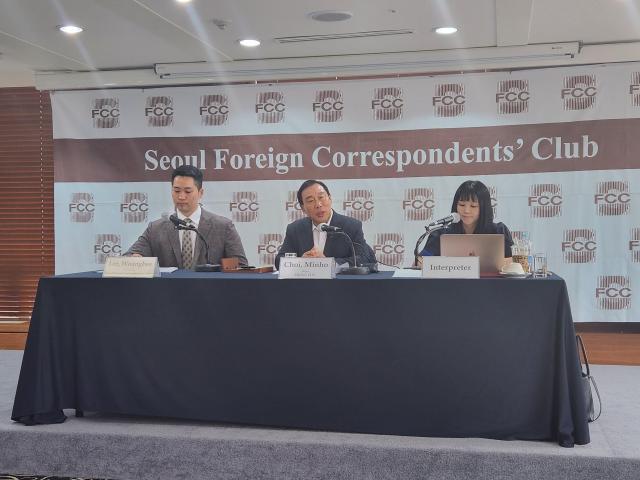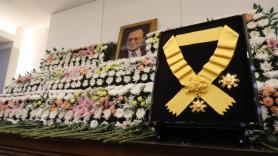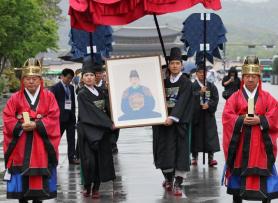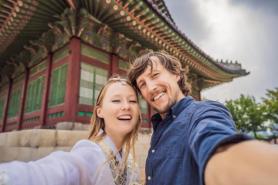
SEOUL, July 22 (AJP) - On Tuesday, Sejong City Mayor Choi Min-ho called for the full relocation of South Korea's presidential office and National Assembly to Sejong, saying that completing the city’s role as an administrative capital is essential to resolving regional imbalance and improving government efficiency.
"Sejong and the completion of the administrative capital are not merely political issues but matters of Korea's future strategy," Choi said during a briefing hosted by the Seoul Foreign Correspondents' Club. "This embodies the public values of national competitiveness, regional integration and improving the quality of citizens' lives."
The plan to relocate the capital was first announced in 2002 but was blocked by a Constitutional Court ruling in 2004. As a result, Sejong was launched in 2012 as a multifunctional administrative city. Since then, it has developed into a key policy center.
Today, Sejong is home to 47 central government agencies, 16 ministries, more than 50 public institutions and major national research institutes. Its population has grown from 70,000 to over 390,000, with an average age of 37.6 years, the lowest in the country. It also ranks near the top in birth rate nationwide.
Still, Choi said inefficiencies persist due to the continued presence of major state institutions in Seoul. "Annual travel expenses between Seoul and Sejong for official duties are estimated at 60 to 70 billion won," he said. "This figure only accounts for official budget spending, not personal costs."
Although a new National Assembly complex is under construction in Sejong and 11 of the Assembly’s 17 standing committees are scheduled to move, Choi stressed that relocating the presidential office is necessary to complete the transition and reduce the excessive concentration of resources in the capital region.
Choi also urged broader structural reforms. He called for the decentralization of high-quality jobs and elite universities, pointing out that over 90 percent of people moving to the Seoul area are young. He proposed relocating parts of Seoul National University to the provinces and restructuring Korea Polytechnic University into an international institution based in Sejong.
He said Sejong should take on the country's core administrative functions, while Seoul should be cultivated as a global city for diplomacy, finance and culture. Referring to the Goryeo dynasty's historical system of "three capitals," he added that Pyongyang could eventually serve as a third capital after reunification.
Choi called for constitutional reform. He proposed a bicameral legislature and a dual executive system where a prime minister oversees domestic affairs and the president focuses on diplomacy, national defense and unification. "South Korea is at a singularity," he said. "The problems we face cannot be solved by existing methods alone."
Copyright ⓒ Aju Press All rights reserved.




